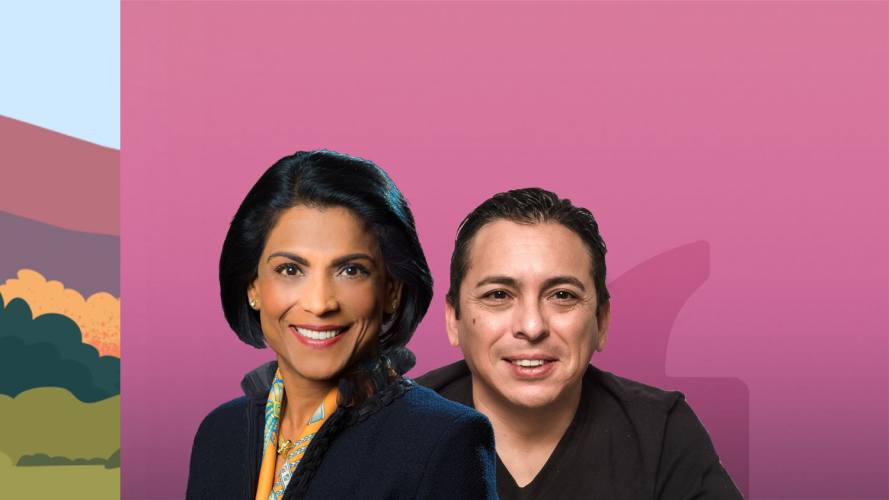Disruption, the New Normal: Focus on Your Clients To Inspire Resilience and Innovation



Regardless of industry or times, MUFG Union Bank’s success depends on keeping client needs at the center of all decisions.

Brian Solis
This article is part 3 of our 5 part series in which Salesforce’s Global Innovation evangelist Brian Solis speaks with our customers about how they’ve transformed to adapt to change since COVID-19 hit in March.
In 2016, a controversial, but eye-opening study found 73% of millennials preferred to handle their financial services needs through Google, Amazon, Apple, PayPal, or Square. At the time, four out of five of those companies did not offer consumer financial services. More so, millennials also voted the four leading U.S. banks in 2016 among their least-loved brands. Fast forward to 2019, and research from BusinessWire cites that millennials are more likely to experience a number of key life events in the coming years. They continually crave new (particularly digital) product features from the companies they use, especially those who manage their money. Banks can capitalize on this with targeted products designed to facilitate these events or mitigate the disruption they cause.
While millennials do not represent the total market for any business, the one thing they symbolize is growth on the importance of modern, efficient, and personalized customer experiences with digital native products and services. If digital innovation is not part of your business strategy, disruption, whether from a pandemic, competitor, or market shifts, is an inescapable event horizon.
The millennial study was one of many disruption signals and it highlights how all businesses need to prioritize innovative customer experiences. COVID-19 only accelerated the inevitable. Now, digitization and innovation are mandates.
Resilience goes beyond digital, it’s using digital to engage customers and clients in meaningful ways while activating digital touch points to build trust and relationships.
In times of digital disruption, a digital response is to be expected. But what matters most is the “why” of any digital transformation. At the center of any business are customers … the people who keep you in business. And, organizations that pair digital transformation with human-centered relationship transformation will likely accelerate change, minimize disruption, and attract new clients while growing customer loyalty.
How MUFG Union Bank uses automation for frontline customer engagement
An example of digital resilience in these times is MUFG Union Bank. Head of Global and Americas Transaction Banking and Bay Area President at MUFG Union Bank Ranjana Clark joined me on “Resiliency in Service” to discuss client engagement. Headquartered in Japan, MUFG Union Bank is one of the leading financial institutions in the world. Clark’s division focuses on working capital management and asset servicing solutions. She shared the company’s incredible story of quickly scaling operations and enhancing client experiences by using automation, agile operations, and customer-centricity in direct response to the COVID-19 disruption.
In times of disruption, focus on the “why” of your business
Regardless of industry or times, Clark believes that the heart of MUFG Union Bank’s success during this pandemic has been the organization’s imperative of keeping client needs at the center of all decisions.
Those needs, according to Clark boil down to:
- Help clients save money.
- Help clients save time and hassle.
- Keep clients secure.
As the pandemic took hold, service disruption wasn’t an option. Among the many things to prioritize in a massive shift, MUFG Union Bank stayed true to its core — clients. Clark knows that, “Clients don’t care so much about our products, clients care about what our products can do for them. It’s about making them more efficient, more effective, and keeping our clients secure.”
“We had to react in real time to how our client needs were evolving, how the virus was evolving, and how the different geographies and countries around the world were reacting in real time,” Clark emphasized. “Reacting to client needs around the world suddenly became paramount.”
Clark shared when an important MUFG Union Bank service provider shut down, as India was forced to shut down, client engagement could not follow suit. MUFG Union Bank accelerated the onshoring of service centers because clients and their businesses did not stop. In fact, their needs only heightened. Some clients now wanted to be served 24/7. Right away, MUFG Union Bank launched chat solutions with Salesforce Service Cloud to enable service colleagues to support multiple chats at once while also supporting clients round the clock.
Move fast, test and learn, and stay true to your core values
To execute quickly, decision-makers need to collaborate across multiple functions to make decisions in real time. Typical silos, departments, and hierarchies won’t cut it in times of disruption.
“Just like clients don’t care about our products, but instead about how our products will help them, our clients don’t care about how we’re organized either,” said Clark. “Typical transactional banks are organized by functional lines, sales, product, implementation, service, risk, and so on. But, we quickly put together small, agile, cross-functional teams focused on the unique product, service, and advisory needs, expressed by our clients. These teams met daily. This helps us quickly deliver products that could be used in remote settings.”
Future- and disruption-proofing is now a matter of everyday business for innovators
The most advanced businesses have long believed in future-proofing their organizations. Leaders know that times, trends, and tastes always change. To stay ahead of market shifts requires foresight, agility, and action.
“We’ve been preparing for this for some time, even though we didn’t know it would be a pandemic,” Clark revealed.
To that end, MUFG Union Bank embraces a philosophy that ensures resilience today and tomorrow.
“We have been using an approach, the ‘trend as our friend,’ and the trend has been toward digitization,” Clark observed. “In the transaction banking industry, it’s been moving for some time from paper to electronic to card to digital. And as we know, digital platforms can scale exponentially for clients while offering more relevant, efficient, and timely choices.”
The key is to stay ahead of the curve. Even as digital evolves, and it’s doing so at an accelerated pace, everything changes, especially customer needs and their expectations. Now in the face of a global pandemic, organizations have to build in resilience, disruption-proofing, future-proofing, and innovation into its operational model.
Stay resilient, relevant, and preferred in this ever-changing world
In closing, Clark shared three points of advice to stay resilient, relevant, and preferred in this ever-changing world:
- Stay client-focused and obsessed: Always start with the client and their needs as well as their pain points, and appreciate that their behaviors, expectations, and preferences always evolve.
- Move fast and stay agile. Technology evolves. How clients use technology also moves fast. Their needs change just as quickly. Operate as if disruption is inevitable, because it is. By moving quickly and making decisions in real time, disruption becomes part of your business model.
- Keep it simple. Keep true to the core mission of staying true to your clients. Actively seek ways and means to add value to their business and life, based on their needs, goals, and objectives. Doing so will reveal all the inspiration you need to hyper-focus on creating and delivering that value.
Reimaging customer experience, rethinking employee experiences and capabilities, creating new and value-added products and services, are becoming the new normal to compete now and in the next normal. Stay true to your core mission. Stay focused on your customers. Use technology to scale operationally, experientially, and innovatively. Most importantly, no matter how ironic it may be, use digital to be more human in business, to personalize products and services, and to grow relationships even in times of disruption.
Discover the different ways to engage customers and meet new expectations for customer support in Chapter 3 of our latest guide, “The Service Leader’s Guide to Resiliency.”
























